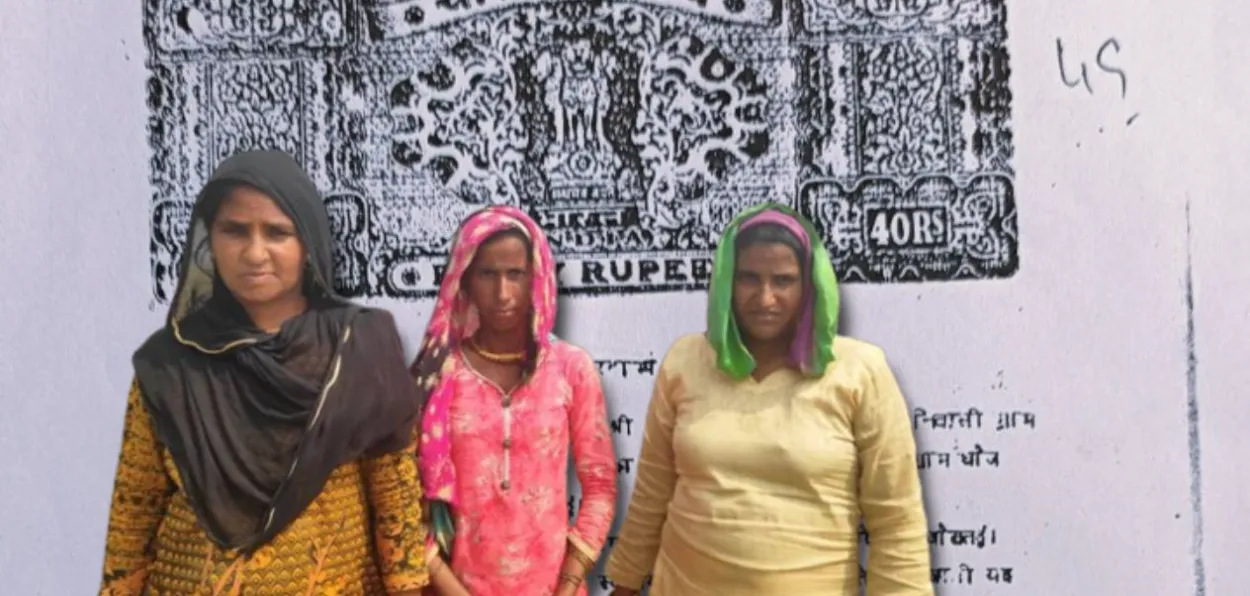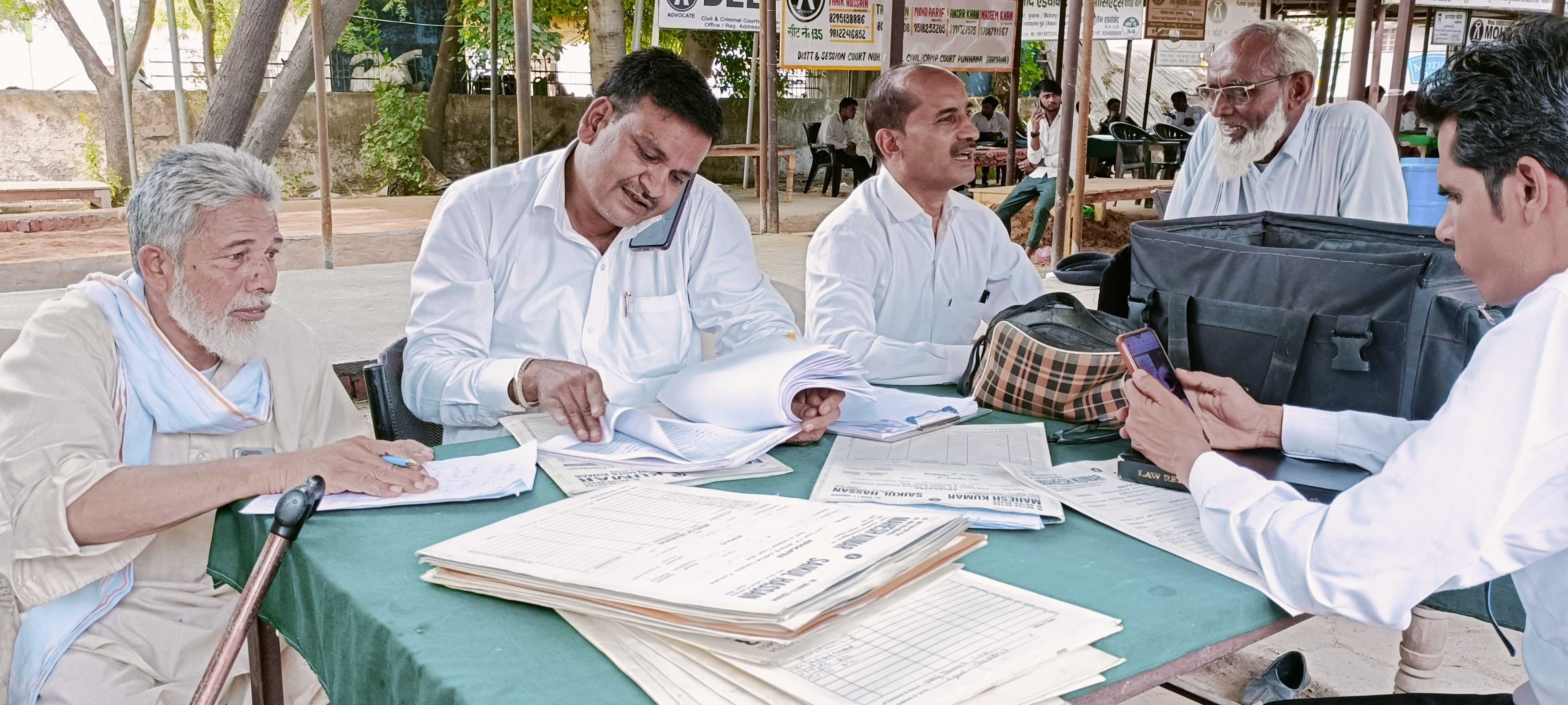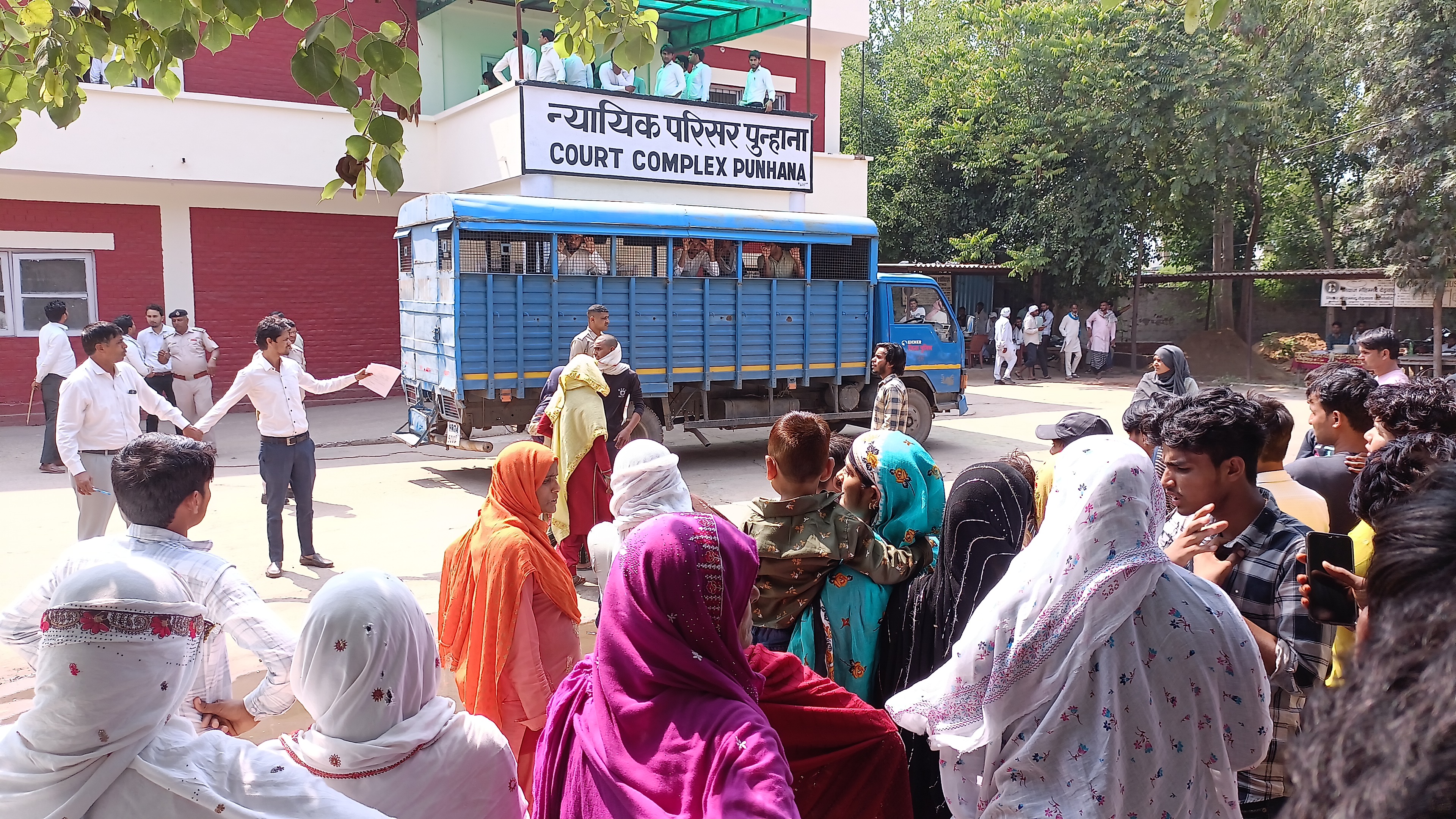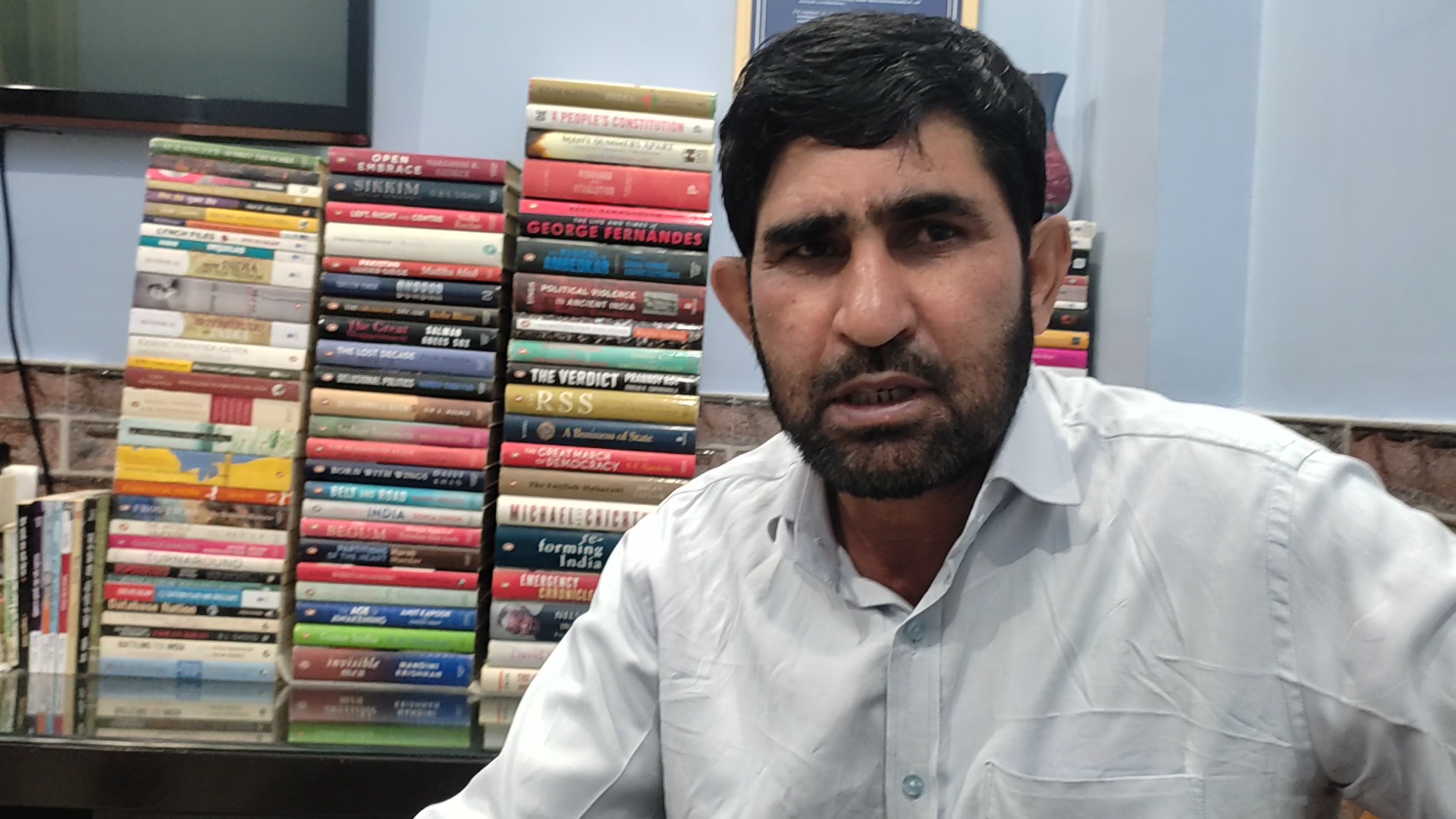
Yunus Alvi/Nuh (Mewat, Haryana)
Should Muslim women be entitled to an unequal share in inheritance under the Muslim Personal law or under the provisions of the Constitution of India that guarantees equal share?
The debate is raging across India following a Kerala couple C Shukkur and Dr. Sheena Shukkuur registering their marriage under the Special Marriage Act, 29 years after being married so that they can pass on their wealth to their three daughters, is irrelevant to a region of northern India where an archaic yet customary law bars Muslim women from inheriting property.
It’s true that in a region of Mewat comprising four districts – Mewat, Rewari, Faridabad and Old Gurgaon, the Meo Muslim women have no right over ancestral property, even if one happens to be the only child of her parents.
This is done under the customary law called Riwaz-e-kanoon which was coined by the British.
In this region located close to the National capital and in the vicinity of the modern city of Gurugram, the inheritance law comes from the Hindu-Rajput past of today’s Meo Muslims.

Advocates in the Nuh Court
This law supersedes the Muslim personal law.
The law was written by Sir W.H. Rattigan as part of his work of compiling all the customs prevailing in the agricultural states of Punjab & Haryana.
Para 22 of the law as enshrined in "A Digest of Customary Law In The Punjab” states: “Every person having an interest in property whether absolute or as life tenant (e.g. a widow, a daughter, or a mother) can sell or mortgage such property for a necessary purpose."
“The rights of the women in agricultural tribes of meos was put at par with the rights of karta in a joint Hindu family property and she could alienate the property for her legal necessity”.
As p[er law, Karta is a manager who looks after the property who has no inheritance rights.
While this leaves women of Mewat deprived of their rights and is one of the causes behind the acute backwardness of the community, the worst-hit are the widows.
Thousands of women who have lost their husbands are struggling in courts to seek a share in the property left by the father or husband and prevent it from going into the hands of his immediate blood relatives (male.).

Women litigants of Meo community outside court premises
If a man has no sons and only daughters, the land will automatically go to the blood relation of his family. After the death of her husband, the woman can live on that land, but she cannot sell the property.
This law also comes in the way of government schemes to empower girl children and women.
However, over the years, awareness about the problems arising out of customary law has been recognized. A group of intellectuals of Mewat is today demanding the repeal of the customary law as it discriminates against women.
Even the Ulema, the Islamic clergy, supports this demand and seeks to repeal the Customary Law and implement the Muslim Personal Law to give rights to the daughters.
In the Meo Muslim community, the inheritance law is so skewed in favour of the males that a woman, who happens to be a single child too doesn’t get to inherit the property left by his parents.
As per the Riwaz-e-kanoon, a woman loses her all claim on the properties left behind by her father after his death.
Even when a woman approaches courts, the customary law gains precedence over the Muslim personal law and the succession laws and she loses the battle.
As society is changing and women are getting empowered, the Meo Muslims are also realizing the irrelevance of this law and devising ways to circumvent it.
Couples with one girl child generally adopt their grandson and bequeath all property to him. Interestingly, while this is a smart way of preventing the property from going into the hands of relatives, it hardly helps the woman in question. This also might be putting pressure on women to produce a male heir.
According to the local lawyers, much litigation has been pending in the courts in Mewat for decades on women seeking the property right and thereby subsistence.
An estimated 2 crore Meos live across 85 districts across the country. This customary Law applies only to the above-mentioned four districts. This law was made by the British government only for the old Gurgaon district.
Today, Faridabad, Rewari, and Nuh districts have been created out of the original Gurgaon.

Mohammad Mubarik
Mohammad Mubarik of Jamalgarh village of Punhana block of the Nuh district has been fighting a legal battle for more than four decades for his rights.
Mohammad Mubarik says a relative named Kamalbi of his village became an issueless widow after the death of her husband Bhabbal in 1965.
“Kamalbi adopted my father Abdul Hameed as her son in 1983. This triggered a war between the lady and the family members of her late husband. The aggrieved family members approached the court to cancel the adoption. “
Abdul Hameed passed away in 2016 during the pendency of the case and since that time he has been fighting the case.
Mohammad Mubarik says that the High Court and the Supreme Court have upheld the validity of his father’s adoption.
However, the family has only been able to get the possession of half of their land.
Mohammad Mubarik says that half of Kamalbi's land is forcibly occupied by other family members. He has again approached the court of Punhana. It took him and his father more than 40 years of litigation to get half their land and now he doesn’t know how long will the rest of the battle take.
Asif Ali of Chandeni is also fighting a similar battle. He told Awaz-the Voice that he has been fighting a legal battle against the Customary Law for the last three decades.
He was married in 1977 to the younger daughter of Zahoor Khan of village Dihana in Nuh Khand. His father-in-law has three daughters and he passed away before Zahoor married his daughter.

Asif Ali
Soon, the claimants of the property started troubling Zahoor Khan’s mother-in-law Asgari as they wanted her to vacate the land and transfer it in their name.
To avoid losing her land which was the source of livelihood for the family, Asghari adopted Zahoor’s son and her grandson in 1992.
The extended family went to court and challenged Asgari’s right to adopt a male heir.
Asif says that in 1996, the session court gave a favourable verdict for his family and today the case is before the High Court.
Asgari passed away in May 2019 and he took care of her till the last moment.
Asif has appealed to the state government to repeal the customary inheritance law and replace it with a new one that gives equal rights to men and women in inheritance.
Advocate Mahesh Kumar says, this law was made during the time of the British Government. Today, there is a need to change it to give women equal rights. “It is better to end the custom law,” he said.
The Ulema of Mewat says that the Customary Law is against both the Constitution and Muslim Personal law.
Due to this British law, the women of Mewat remain backward. Ulema says that this is a law that keeps Mewati girls away from their share in their ancestral property. On the contrary, there is an order in Islam to give girls a share in ancestral properties.
Due to Customary Law, thousands of girls of Mewat are deprived of their family property. Now the time has come to raise the voice for the rights of the Mewati daughters.
Mufti Zahid Hussain of Mewat says that Muslim personal law should be implemented in the Mewat area of Haryana by repealing the Customary Law. He claims that people want this personal law to be implemented.
The Ulema have met local politicians and demanded the repeal of the Customary Law (Rivaz e Kanoon) and implement Muslim Personal Law.
Three MLAs of Mewat have promised to bring a private bill to the Haryana Legislative Assembly to attract the attention of the government to this anomaly. Mufti Zahid Hussain said the Customary Law was against Shariat. He says that Islam advocates giving daughters a share in their ancestral property while the customary law deprives Muslim women of it. This should be canceled. He told that in Islam, there is a provision to give double the share of ancestral land to the son and one times the share to the daughter.
Nuh MLA Aftab Ahmed and Punhana MLA Mohammad Ilyas say that the Ulema of Mewat has placed a demand on the repeal of the Customary Law.
ALSO READ: I did it for dignity of my daughters and all women: Shukkur who remarried under SMA
He said he will consult other MLAs of Mewat and form a common strategy on this demand. A private bill will be brought against this law in the upcoming assembly session.
